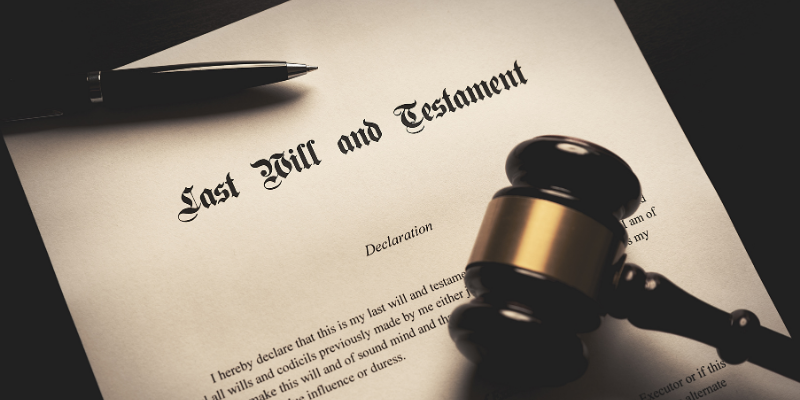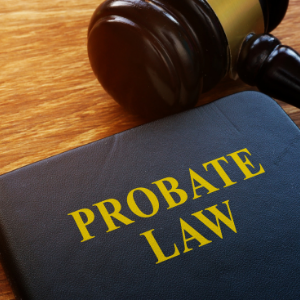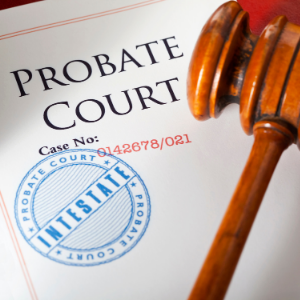
Understanding whether the executor of a will can sell property in Raleigh, NC, is essential for anyone involved in estate planning or management. This comprehensive real estate guide aims to clarify the executor’s role and responsibilities, addressing legal considerations specific to North Carolina. Navigating the selling process requires a keen awareness of state laws and familial expectations, ensuring a smooth transition of assets. By exploring these aspects, executors and beneficiaries alike can make informed decisions that respect the decedent’s wishes while adhering to legal obligations. Discover the steps involved in property sales within an estate context today.
If you’re handling an estate and looking for a simple, fast way to sell a property, Fair Cash Offers For Homes can make the process easier. They buy houses for cash in Raleigh, Cary, Durham, Chapel Hill, and Wake Forest, helping executors close quickly—without repairs, commissions, or lengthy listings.
Key Highlights
- Executors in Raleigh, NC must follow state laws and complex legal obligations when selling estate property.
- Consulting a probate attorney is crucial for complying with legal standards and navigating North Carolina probate law.
- Court approval is often required for property sales to protect the interests of both the estate and beneficiaries effectively.
- Executors face challenges such as legal disputes and market fluctuations, requiring strategic planning and expert advice.
- Detailed estate preparation, including asset inventory and addressing debts, facilitates a successful property sale.
The Role of the Executor in Selling Property
In Raleigh, NC, the role of an executor involves more than merely following the decedent’s will. Executors are tasked with navigating North Carolina’s estate laws, which include the pivotal responsibility of selling property. Understanding these tasks is crucial, as they must adhere to complex legal obligations to ensure the estate is handled correctly and efficiently. Consulting a probate attorney is often a beneficial step to manage extraneous details and secure necessary authorizations. Their expert guidance can streamline the probate process, ensuring that the estate sale complies with local regulations and benefits the estate’s beneficiaries.
The Importance of Consultation with a Probate Attorney

For executors in Raleigh, NC, working with a probate attorney is one of the most important steps when selling estate property. Probate laws in North Carolina can be complex, and trying to navigate them alone risks delays, disputes, or noncompliance with legal requirements. An experienced attorney provides clarity, ensures all paperwork is filed correctly, and helps executors fulfill their duties with confidence.
Court approval is often required before selling real estate during the probate process, particularly in contested estates or those involving multiple heirs. A probate attorney can prepare the necessary petitions, appraisals, and legal documentation to show that the sale aligns with the will and benefits the estate. They also offer valuable guidance in handling disputes, creditor claims, or liens that could otherwise derail the process.
Beyond legal paperwork, attorneys act as advisors and mediators. They explain probate terms in plain language, identify risks early, and help executors make informed decisions that protect both the estate and its beneficiaries. By consulting a probate attorney in Raleigh, executors gain the legal expertise and support needed to move the process forward smoothly while honoring the decedent’s wishes.
However, not all executors have the time or resources to manage traditional real estate sales. That’s where Fair Cash Offers For Homes steps in. Their team helps executors sell their house fast in Durham, offering fair, all-cash deals that eliminate listing delays, costly repairs, and agent fees. This can be especially beneficial when the estate needs a quick resolution or when heirs live out of state.
Real Estate Guidelines for Executors in North Carolina
Serving as an executor in North Carolina entails navigating a complex set of real estate guidelines to manage an estate effectively. Understanding when court approval is required for property transactions, as well as the nuances of North Carolina probate law, is essential. Executors are tasked with adhering to specific legal and procedural steps to ensure they fulfill their duties as outlined in the decedent’s will. This discussion will delve into the circumstances under which court approval is necessary and provide insights into the probate law landscape, empowering executors to handle property transactions with confidence.
When Court Approval is Required in Raleigh, NC
Like most U.S. states, North Carolina requires executors to obtain court approval before selling property. Not only does the probate court protect heirs and verify that the sale is to the estate’s benefit, but it also ensures compliance with the state’s probate laws concerning enumerated oversight. These measures, while careful, also help avoid the risk of potential disagreements.
Harmless, to the executor, they might appear; court hearings and the processes that precede them can be grueling. Court approval goes to the executor’s testimony that the sale to be made is beneficial, and above all, required. Acquisitions of bids, along with the petitions to the probate court, make acquiring court approval a task that is beyond struggle. Denial, however, can be brought to the executor without fee, and along the lines, can face claimed breaches of the duty to serve.
To avoid this, most executors opt to hire a probate attorney, for, despite their efforts, the laws of North Carolina prove to take no shortcuts. Assistance will be invaluable, as the outline of the case must be handled with attention and precision, as all required forms must be completed to both legal and trustworthy standards. With professionals, the advancement along the estate multitude complexity route is the most favorable.
Navigating North Carolina Probate Law

In North Carolina, an executor of an estate must adhere to certain North Carolina probate customs, which include managing the estate and selling property after the owner’s death. Executors take the probate documents to the probate court, construct a portfolio of the estate, and, after determining the debts, proceed to sell the estate. Each executor must provide transparency, which means that every executor must submit a statement or make an advance declaration to the court.
For probate real estate sales, there is court approval to ascertain that the probate property is kept, and the court orders the heirs and the estate. Executors should focus on preparing for the custody disputes and claims. It is therefore seen that a probate attorney is always indispensable. All paperwork, as well as court documents, must be in order; otherwise, there is a high probability of complications.
So. It is thus understandable that taking advice from others and familiarizing oneself with other probate lawyers is a relief.
Steps for Selling Property During Probate in Raleigh, NC
Selling property during probate is a critical process executors must navigate. This involves understanding estate preparation, handling potential challenges, and ensuring the sale complies with North Carolina’s legal framework. Executors must embrace strategic steps to manage the decedent’s property, address debts, and successfully sell estate assets. Navigating these tasks ensures the interests of the decedent’s beneficiaries are protected. From preparing the estate for sale to overcoming common obstacles, each step must be approached with diligence and an understanding of the intricacies of the probate process to facilitate an effective property sale.
Preparing the Estate for Sale in Raleigh, NC
Until an executor can sell property in Raleigh, NC, the estate needs to be sufficiently prepared. The initial stage involves compiling a comprehensive estate inventory, which lists all assets, including real estate. For North Carolina estate and probate laws, record-keeping validity is a legal necessity; it is also vital for transparency to the estate’s beneficiaries.
After compiling the inventory, the executor must inspect the property’s condition and assess its value against prevailing local prices. Working with a real estate professional also helps set an optimal value for the estate and price the property accordingly.
Another equally important step is resolving all outstanding debts and liens. Executors must coordinate with creditors in the early stages of the probate process to clear any exceptional legal obligations that may delay the process. Careful record-keeping of all activities, transactions, and communications helps preserve the estate from likely disputes that may arise.
Last, but not least, executors may have to deal with the personal effects left in the property. Items that are kept for sentimental value or sold to clear debts are handled with care to prepare the executor for property listing and to honor the deceased’s legacy.
Executors can establish a solid foundation for a smooth and successful property sale in probate by addressing all estate matters, including inventory, property valuation, debt settlement, and the sale of real estate.
Common Challenges and How to Overcome Them

In Raleigh, NC, executors often encounter difficulty in selling property that is in the probate process. One of the biggest challenges is getting the court’s approval. The probate court requires convincing evidence that the proposed sale is in the best interests of the heirs and benefits the estate. Documentation must be provided in detail. Without it, the sale may be stalled, or even the court may reverse it.
Among the heirs, disputes can further complicate matters. They may be at odds over the distribution of assets, which could result in costly litigation if left unchecked. Executors are expected to be communicative and, if necessary, to work with a probate attorney to reach a settlement that complies with North Carolina’s probate laws.
Another example of a complex problem is dealing with a change in the estate’s value. The fluctuation in the real estate market in Raleigh and North Carolina may affect the inventory sell-out period and the selling price. Executors are ensured a reasonable return if a knowledgeable real estate agent who understands probate in the jurisdiction is retained.
Real estate professionals, working in conjunction with lawyers who understand the challenges above, can help executors sell probate property successfully and avoid compliance issues. Undoubtedly, the wishes of the departed would be honored, too.
In conclusion, while executors in Raleigh, NC, can sell property as part of executing a will, it’s crucial to adhere to legal requirements and obtain any necessary permissions from the probate court. Ensuring the sale aligns with the best interests of the beneficiaries and reflects the deceased’s wishes is paramount. Executors should consider consulting with legal professionals knowledgeable about North Carolina’s real estate laws to navigate the process effectively. This careful approach not only fulfills the executor’s fiduciary duties but also helps preserve the estate’s value for all involved parties.
Whether you’re managing an estate or simply need a fast sale, Fair Cash Offers For Homes helps homeowners navigate difficult transitions with fair offers, quick closings, and trusted local expertise. Contact us at (919) 551-8506 today to get your offer!
Helpful Raleigh Blog Articles
● Selling An Inherited House In Raleigh, NC
● Sell A Foreclosed Home In Raleigh, NC
● Selling Your Raleigh, NC, Home In Poor Condition
● Sell A Fire-Damaged House In Raleigh, NC
● Cost To Sell A House In Raleigh, NC
● Selling A Fixer-upper Home In Raleigh, NC
● Tax Responsibilities When Selling A House In Raleigh, NC
● Can You Sell a House with a Lien in Raleigh, NC
● How Long After an Appraisal Can You Close in Raleigh, NC
● Can the Executor of a Will Sell Property in Raleigh, NC?
● Best Things to Do in Raleigh, NC, With Kids
● Free Things to Do in Raleigh, NC

![Sell My Mobile Homes in [market_city]](https://image-cdn.carrot.com/uploads/sites/78206/2026/01/Sell-My-Mobile-Homes.jpg)
